
It's difficult to envision dinosaurs roaming the arid, expansive prairies and badlands of Central and Eastern Montana, yet this entire region provides remarkable opportunities for amateur paleontologists to explore this fascinating realm while they get their hands in the dirt.
Montana was a vastly different landscape than it is today. "It was warmer than it is now and there doesn't appear to be evidence of frozen polar ice caps," noted Eric Metz, paleontology collections manager of the Museum of the Rockies in Bozeman. The Western Interior Seaway stretched from the Rocky Mountains east to nearly Minnesota, with a humid landscape lush with ferns and gymnosperms, such as conifers and Ginkos.
This vegetation fed herbivorous dinosaurs like the Maiasauras, Cerasinops, a relative of the Triceratops, and the 90-foot-long Apatosaurus. These species, as well as smaller animals, were often food for the iconic Tyrannosaurus Rex, the smaller Troodons, or the "raptor" Deinonychus during the Jurassic and Cretaceous Periods.
"We have a lot of evidence of early birds. They had teeth, which was cool," said Metz who noted that there were also flying reptiles, which were not dinosaurs, and the Pterosaur was the largest creature that ever flew. "And you still had different species of lizards and frogs."
While we don't often envision it, Metz points out that there were three groups of mammals during this time, including the placentals, marsupials, and multituberculates, which had rows of cusped, interlocking teeth. These went extinct after the Cretaceous period for reasons unknown. And besides the land-dwelling animals, the inland sea teamed with life including the Plesiosaur, Mosasaur, and large marine turtles.
DIGGING UP THE PAST
This story is from the {{IssueName}} edition of {{MagazineName}}.
Start your 7-day Magzter GOLD free trial to access thousands of curated premium stories, and 9,000+ magazines and newspapers.
Already a subscriber ? Sign In
This story is from the {{IssueName}} edition of {{MagazineName}}.
Start your 7-day Magzter GOLD free trial to access thousands of curated premium stories, and 9,000+ magazines and newspapers.
Already a subscriber? Sign In
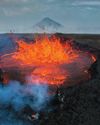
THE BRIGHT SIDE OF VOLCANIC ROCK
As a mineral resource, volcanic rock is decidedly short on glamour.
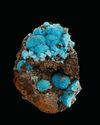
The Other Copper Minerals
12 Lesser-known Collectible Species

MINERAL COLLECTING -AND ROCK & GEM
Evolving Together FOR 54 YEARS
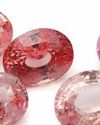
Gemstone Trends
A Look Back at 2024 & What to Expect in 2025
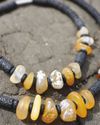
How to Make a GEM BEAD NECKLACE
No Lapidary Experience Needed!
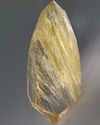
Framing Nature's Art
Faceting Rutilated Quartz for Beginners
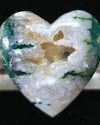
BEDAZZLED BLUE SEAM AGATE
More than several centuries ago, mining was the profession most often seen as befitting of men.
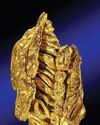
ROCK & GEM FIELD GUIDE:
Spinel is a captivating gemstone with a rich history of being mistaken for gems like ruby and sapphire.
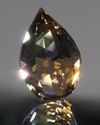
SNAKE SCALE DROP 1.5:1
This Faceting Focus is revisiting the briolette gemstone design because of its popularity with independent and hobby gemstone faceters.

STONE CHIC
How Earth-Inspired Decor Brings Comfort to our Home